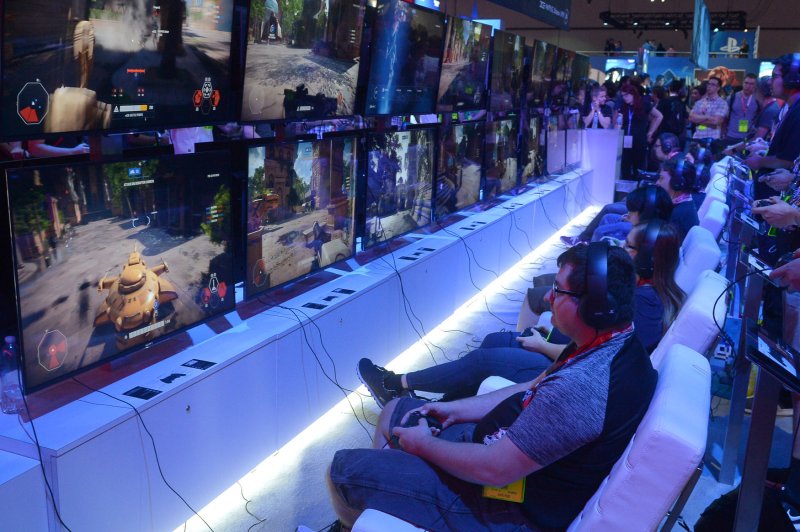A review of previous research confirms video gaming alters the shape and functionality of the human brain. Photo by Jim Ruymen/UPI |
License Photo
June 22 (UPI) -- A new survey of the scientific literature on the neural effects of video game playing confirms the activity alters the brain's shape.
Studies show brain regions responsible for attention and visuospatial skills are altered and often made more efficient by frequent video game playing. Research also shows the neural reward system of video game players frequently resembles those of people with addictive habits.
Researchers published their survey in the journal Frontiers in Human Neuroscience.
"Games have sometimes been praised or demonized, often without real data backing up those claims," lead study author Marc Palaus, a researcher at the Open University of Catalonia in Spain, said in a news release. "Moreover, gaming is a popular activity, so everyone seems to have strong opinions on the topic."
In total, Palaus and his colleagues reviewed 116 scientific studies. One hundred of the studies analyzed changes in brain functionality, and 22 looked at structural changes. The studies showed video game playing can alter both the structure and performance of the human brain.
Several studies showed video game players showed an increase in sustained attention or selective attention abilities. The research shows neural regions linked with attention perform more efficiently in the brains of gamers. Video game players can deploy their attention skills without using as much brain energy.
Palaus and his fellow researchers also found evidence that gaming boosts the size and efficiency of brain regions linked with visuospatial skills.
The survey also identified research suggesting gaming can become addictive for some, rewiring the brain's neural reward system in ways similar to those with other addictive disorders.
Video games are still relatively new, but they're becoming exponentially more popular. Researchers say more work needs to be done to understand how video games alter the brain -- and how these neural changes play out in real life.
"We focused on how the brain reacts to video game exposure, but these effects do not always translate to real-life changes," said Palaus.
Researchers say the scientific literature is proof video game playing can have both positive and negative effects on the human brain and behavior. More studies, Palaus argues, need to embrace this complexity.















